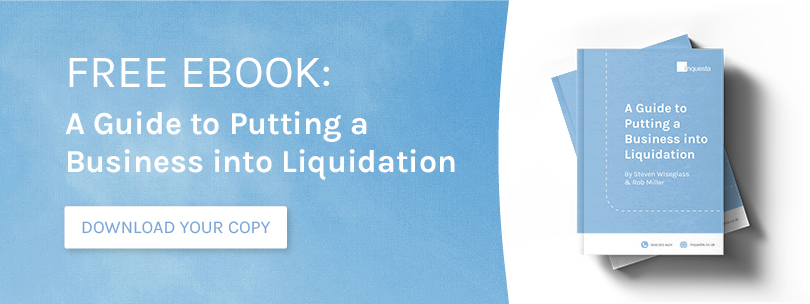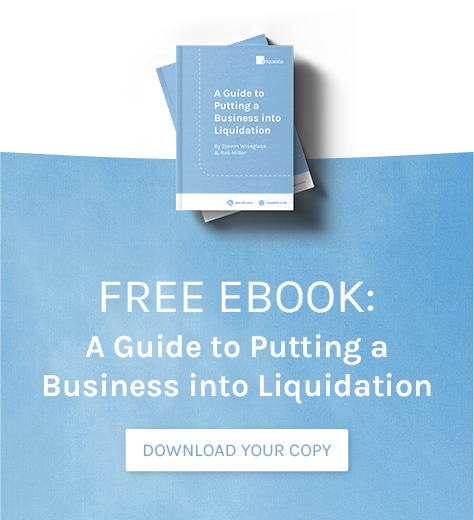50:50% ownership is a unique set up for a modern business. It is exceedingly rare for a company to operate in this way because it can maximise the potential for impasses, disputes, and fall outs, while minimising the chance for solutions and resolutions to be found that benefit all parties.
Business can be an emotional place at times. When the chips are down and one shareholder wants to liquidate a company, and their equal stakes partner thinks otherwise, what are their rights? Can a 50% shareholder liquidate a company?
What Does 50:50% Ownership Practically Mean?
When a business is started by two people with equal responsibility and workload, it can feel natural to also split the shares down the middle. This agreement is called 50:50 ownership and it dictates that the responsibility of making the important decisions, and the share of the profits are split equally, right down the middle.
In many 50:50 businesses it is common for each partner to have different roles in the company. With each taking responsibility for unique parts of the company that suit their individual expertise or experience.
A 50:50 split often occurs when two friends go into business together because it can seem like a natural and convenient solution, and can often feel like a breeze when things are going well. However, eventually a dispute will likely arise, and the 50:50 management structure can create a highly complex situation.
With nobody holding a casting vote, a disagreement over a big decision can hugely impact the company and put the brakes on any business.
Can a 50% Shareholder Liquidate a Company?
A shareholder may decide that they want to liquidate a company for any reason. From retirement, to pursuing other ventures. Generally, a majority shareholder has the right to do this, as long as all minority shareholders are sounded out over the situation and are offered a resolution or financial incentive that benefits them.

But in the case of a 50:50 shareholder business, if one of the shareholders wishes to liquidate a company and is unable to convince the other, then the situation becomes much murkier and more complicated.
If the Other Shareholder Agrees
In a situation where two 50:50 directors come together and agree to close down a company, the circumstance is fairly straightforward.
Without the need to resolve any dispute, a Members Voluntary Liquidation can be enacted, allowing the solvent company to be quickly and easily closed down, with remaining company assets being shared between the shareholders.
If the Other Shareholder Doesn’t Agree
When the two shareholders hold equal shares in a business and can’t come to terms on a decision it is classed as a ‘deadlock’. This is because, due to there being nobody to cast a deciding vote, the situation is a stalemate. Without a huge about-face change of mind, there is unlikely to be any straightforward solutions on the horizon.
This situation can be hugely complicated, and potentially damaging to the future of the business. With one shareholder perhaps looking ahead to the next thing, and the attention of the other now being shifted elsewhere, the business can suffer. Day-to-day operations and the focus of the company can decline.
If neither shareholder can agree on a course of action, and they can’t agree on a mutually beneficial resolution, then outside mediation may be needed. An independent adjudicator can be brought in to offer their professional opinion, and, through a succession of face to face meetings between both parties, find some sort of solution.
Just and Equitable Grounds
In the UK it is possible to liquidate a company under ‘just and equitable grounds’. This is a means to end a deadlock between owners. It hands responsibility over the next step to the courts. The court will then come to a decision on what they see as the best option available for the company, be it liquidation or to find another resolution.
While rare today, this form of petition is designed to resolve disputes when the relationship between parties is deemed to have irreparably broken down. Conclusions of a just and equitable winding up petition can be voluntary liquidation, or it could lead to an alternate solution like a one party buy-out.
Buying Out Shares
Another resolution worth considering in the event of a deadlock is one director buying out their counterpart. This can often be seen as an ideal middle-ground, be it one with its own complications.

This scenario entails the party wishing to liquidate selling their shares to the opposing shareholder, should they have the required funds, allowing both sides to, in essence, get their way. One shareholder is afforded the freedom to step away from the business, while the other gains total control to run it how they wish.
A buyout can cause issues though, particularly when the business was founded and nurtured from the ground up over many years, with both parties holding an emotional attachment to the brand. In this case it can be tough for one party to let go and allow the other to operate without them.
What does Liquidation Mean for Shareholders?
Liquidation can mean different things for shareholders, depending on the finances and circumstances behind the decision to wind down. In the case of a solvent liquidation, all assets left over after any creditors are paid is distributed to the shareholders.
In the event of an involuntary liquidation, the job of a liquidator is to come into a company and sell all assets and raise money to pay off creditor debt, before shuttering the business. In this case, addressing the creditors rights come first and foremost, before shareholders receive a penny. It isn’t uncommon for shareholders to not receive anything in the event of an involuntary liquidation.
Should you, as a shareholder, be in the position to receive little to no money following a liquidation, you should be able to realise your financial hit as a capital loss. Whereby you can reduce your taxable income by the amount of money lost.
It is recommended to receive specialist advice in the event of your company being placed into liquidation to make sure that you and your assets are protected.
For more information on the liquidation process for shareholders, check out our blog.
How Inquesta can Help
If you are considering liquidating your company, or your fellow shareholder is broaching the subject, it is important to seek specialist advice to avoid the possibility of costly mistakes.
For advice on all forms of liquidation, what your rights are, assistance in getting the ball rolling, and more, you can trust Inquesta to help. Years of experience mean that we have seen anything you can throw at us, and are expertly placed to offer guidance and support.
We have created a free to download eBook guide that will take you through the liquidation process from beginning to end, while going over the warning signs you should look out for, what impact it could have on you and any other stakeholders, and more.
We offer a cost-effective, results based service that will keep you in the loop from top to bottom and promises to assess the situation and come up with an appropriate strategy to solve your problem.
To find out more about how Inquesta can help you, contact a member of our team today, or request a free consultation.




